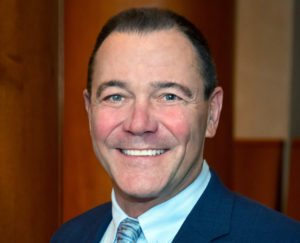Serving Leadership

Michael J. Readinger
In our work with the Nollau Leadership Institute we focus on the tenets of the CHHSM value proposition: Bold Vision, Shared Values and Inspired Leaders. It is done in a subtle way as we use the curriculum in the three retreats to help shape the current and future leaders of our member ministries. This year’s class just completed their first retreat in West Bend, Wis., and they proved once again that the student may be the teacher and the teacher may be the student. Here is what we learned:
For decades we have heard and used the term servant leader. We preach, we teach, we model, and we embrace this theory as a fundamental value of the life of Jesus that inspires us to serve the clients and residents entrusted to our care. We accepted what the research had given us. We discussed the traits that good leaders exhibited and the values that their followers sought. We even explored and created a model and theory of our own understandings about the reality of what makes a great leader in the world of health and human service ministry. What we had not really considered in the past was how this term might affect someone.
Given the history of race and class in our country, the word servant can be off-putting, offensive, disturbing and even an emotional trigger. Maybe not to everyone, but enough to consider a serious revision to how we talk about the subject of leadership in our service to others. Hence, the title of this column and a commitment to rebrand our work and teaching of what we will now call Serving Leadership.
Please join the hundreds of Diakonal Ministers in our CHHSM family, the Nollau faculty, the participants of the 2019-2020 Class, the CHHSM Board and Staff in using this new terminology. I am not asking the history books to be rewritten. I am not seeking to have past research and writing on the topic revised. I am not looking for You Tube videos to be retaped. I am merely asking for us to be sensitive to how some words affect some people. I am also asking us to step back and think about many of the words we use in our every day language, in our teaching, in our work places. How do these words impact others? Just because we have always used certain terminology or language does not mean that we can’t revise our way of thinking and talking about serving and leadership. And, why stop there?
Listen to others when they suggest something you say is bothering them. Engage in a dialogue about it and find out what feelings are caused and what language can be used to make the same statement in a more acceptable way. Words are just words, but they are powerful when spoken and heard. Especially when they cause pain.
So, Serving Leadership it is as we move forward at the Nollau Institute. Gratitude and thanks for those who had the courage and the sensitivity to react to the terminology and the wisdom and creativity to suggest an alternative.
What other words and terms should we think about revising? I am interested in hearing your thoughts.
Join Our Mailing LIst
"*" indicates required fields
Follow on Facebook
Denise Buck to Succeed Campbell as IFM CEO - CHHSM
www.chhsm.org
As IFM Community Medicine (IFM) Founder and CEO David Campbell M.D. plans to retire mid-year, his successor, Denise Buck M.D., has started working full-time with IFM in St. Louis. Before assuming this...